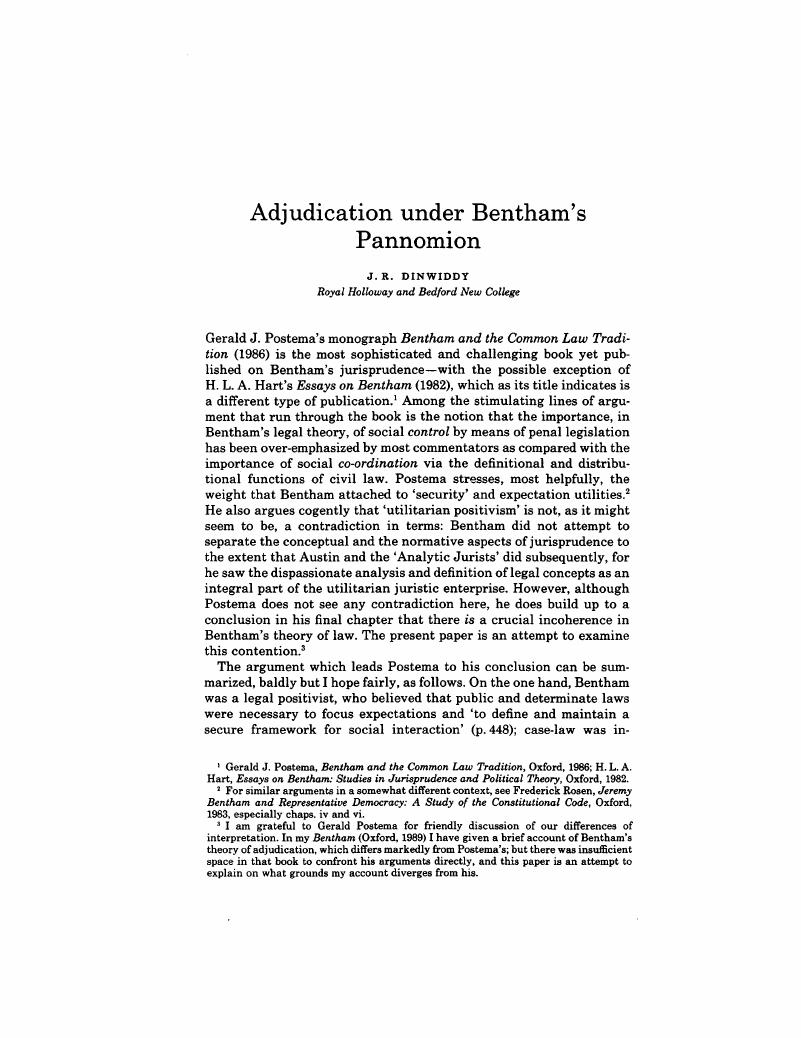Article contents
Adjudication under Bentham's Pannomion
Published online by Cambridge University Press: 26 January 2009
Abstract

- Type
- Discussion
- Information
- Copyright
- Copyright © Cambridge University Press 1989
References
1 Postema, Gerald J., Bentham and the Common Law Tradition, Oxford, 1986Google Scholar; Hart, H. L. A., Essays on Bentham: Studies in Jurisprudence and Political Theory, Oxford, 1982.CrossRefGoogle Scholar
2 For similar arguments in a somewhat different context, see Rosen, Frederick, Jeremy Bentham and Representative Democracy: A Study of the Constitutional Code, Oxford, 1983, especially chaps, iv and vi.Google Scholar
3 I am grateful to Gerald Postema for friendly discussion of our differences of interpretation. In my Bentham (Oxford, 1989) I have given a brief account of Bentham's theory of adjudication, which differs markedly from Postema's; but there was insufficient space in that book to confront his arguments directly, and this paper is an attempt to explain on what grounds my account diverges from his.
4 Postema does consider one or two rather subtle arguments that Bentham might putatively have produced to counter the objection raised; but as they are not arguments that Bentham actually used for this purpose, and as Postema does not regard them as constituting a very effective rebuttal, we may leave them aside.
5 Twining, William, Theories of Evidence: Bentham and Wigmore, London, 1985, pp. 66–75.Google Scholar
6 Postema, , p. 416Google Scholar, quoting The Works of Jeremy Bentham, ed. Bowring, John, 11 vols., Edinburgh, 1838–1843, iii. 312.Google Scholar (In the text below, this edition is cited in the form: Bowring, , iii, 312.)Google Scholar
7 i.e., an outcome that conflicts with the dictates of utility.
8 He goes on to cite the same example as Postema cites: ‘It is for want of such an institution, that in this respect the condition of France, since the prodigious improvement received from Buonaparte's Codes, has been continually growing worse and worse. Not more than a dozen years have those five codes been in authority, and already the field is crowded, the conception of the people perplexed, and uncertainty continually rendered more uncertain by swarms of commentaries.’
- 8
- Cited by


